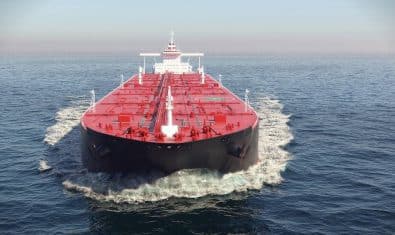Share values of five of the six biggest commercial banks dropped in 2017. However, the CEOs of these banks didn’t even feel a whiff of the major hit that their respective organizations took in terms of share prices. Apart from the chief executives of Allied Bank, all CEOs racked up big chunks of cash as compensation for the year 2017.
The biggest payout-surprise came from Habib Bank Limited (HBL). HBL was hit with a hefty fine of $225 million in New York for its noncompliance with risk management rules. However, its outgoing CEO Nauman K. Dar still managed to earn plenty of cash as compensation and other bonuses.
As of 2016, a CEO earned 52.5 times – Rs 77 million – more money than an average banker.
Let’s take a look at how much the CEOs of top banks made in 2017.
Highest Earners
United Bank Limited (UBL): UBL’s CEO was the top earner among all executives of the top commercial banks. The CEO received a staggering Rs 216.23 million in 2017 as salary alone- an increase of 50% from last year.
UBL saw a change of command in 2017 as its share price dropped 22.3 percent in 2017. The outgoing CEO, Wajahat Hussain, made Rs 51.3 million as “severance cost” apart from his salary of Rs 144.1 million. Sima Kamil, incoming CEO and Wajahat jointly made Rs 216.3 million as annual remuneration in 2017.
ALSO READ
Supreme Court Halts Sindh Bank’s Merger With Summit Bank
Bank Alfalah’s CEO saw an increase of 17.5% in the payout and managed to take home Rs 119.46 million in 2017.
Bank Alfalah also witnessed a change of command thrice in 2017. Atif Bajwa resigned as CEO in July 2017 and received a huge payment of Rs 694.47 million.
Nauman Ansari then filled in his shoes at an annual salary of Rs 101.6 million. Bank Alfalah was the only commercial bank among top banks whose share price increased – 10.6% – in 2017.
ALSO READ
Bank Alfalah Launches First Ever ADT1 TFC at the PSX
Habib Bank Limited: HBL lost around 78% in terms of profits in 2017 as compared to 2016. The Bank made Rs 7 billion in profits in 2017, compared to Rs 31.8 billion that it earned in 2016.
The loss was mainly due to the fine that a US regulator imposed on the bank. HBL’s CEO wasn’t affected by the huge losses that the bank suffered. He took Rs 99.32 million as salary in 2017, excluding other bonuses and compensation. The CEO saw an increase of 22.1% in his salary in 2017.
ALSO READ
Bank Islami and KASB Bank Merger Cost Rs. 3.5 Billion Loss to Pakistan: AGP Report
Nauman K. Dar, in total, received a payout of Rs 345 million during his last year as HBL CEO in 2o17. His earnings increased by about 27% from 2016 despite the fact that HBL lost 78% profits during the same time. Here is a breakdown of Dar’s payout;
- Salary: Rs 100 million.
- Leave encashment: Rs 45 million.
- Long-term benefits: Rs 30 million.
- Short-term benefits: Rs 170 million.
The short-term benefits come from employees’ “evaluation and the bank’s performance during the year” – Rs 170 million bonus came from the Bank’s performance in 2016. Dar received Rs 160 million in 2016 for HBL’s performance in 2015. No bonus was given to the ex-CEO for 2017 as HBL lost 5% of its net assets during the period.
Muslim Commercial Bank: MCB’s chief executive made Rs 94.44 million in 2017 with a year-on-year increase of 5.9%. MCB’s share price dropped by 11.6% in 2017.
National Bank of Pakistan: NBP’s CEO earned Rs 59.9 million in 2017 with an increase of 19.9% from last year. NBP lost 37.36% value in terms of its share price.
Allied Bank: Allied Bank’s top official saw a decrease of a substantial 22.3% in the annual salary. However, the Chief Executive still managed to take home a decent Rs 45 million paycheque in 2017. Allied Bank’s share price dropped by 30% in 2017.
State Bank of Pakistan’s Guidelines
SBP has underlined several guidelines that show that the CEO’s bonuses should reflect the bank’s performance. The bonuses should disappear if the bank doesn’t perform well and vice versa. SBP’s guidelines tell;
Subdued or negative financial performance of the institution should generally lead to a considerable contraction of the institution’s total variable compensation taking into account both current compensation and amounts previously earned and withheld under deferred pay arrangements.
Despite all the guidelines, it doesn’t seem that the CEOs feel any effect of a bank’s poor performance whatsoever. Banks’ shareholders don’t look to be bothered by CEOs’ hefty paycheques either.
Via Profit


























This is insane in return these banks provide nothing useless for tech people they are not even able to bring PayPal to Pakistan .
WTF does a bank have to do with PayPal? Fazul ki bongian kyun marte ho?
In the absence of venture capitalists in Pakistan, Pakistani banks should step up to the plate and fund promising startups after going through their business plans and future prospects. Otherwise, more than 90% of these startups will not survive without sustainable funding for at least the initial years before they start generating revenue. But Pakistani banks are fixated on skinning borrowers through high interest rates instead of facilitating promising startups. Sad indeed :(
No wonder this sector is dying a slow, painful death. Outdated technology, pathetic increments, disgruntled customers and lack of any innovation are synonymous with of our banks. With more and more people turning to mobile money and m-wallets, branchless banking and telcos will literally gobble traditional banking. The top management will keep making good money and even get amazing severance packages for running the industry in the ground. Sad!
MCB is not abbreviated as Muslim Commercail Bank any more.
“Bank” means MCB Bank Limited, “formerly Muslim Commercial Bank”.